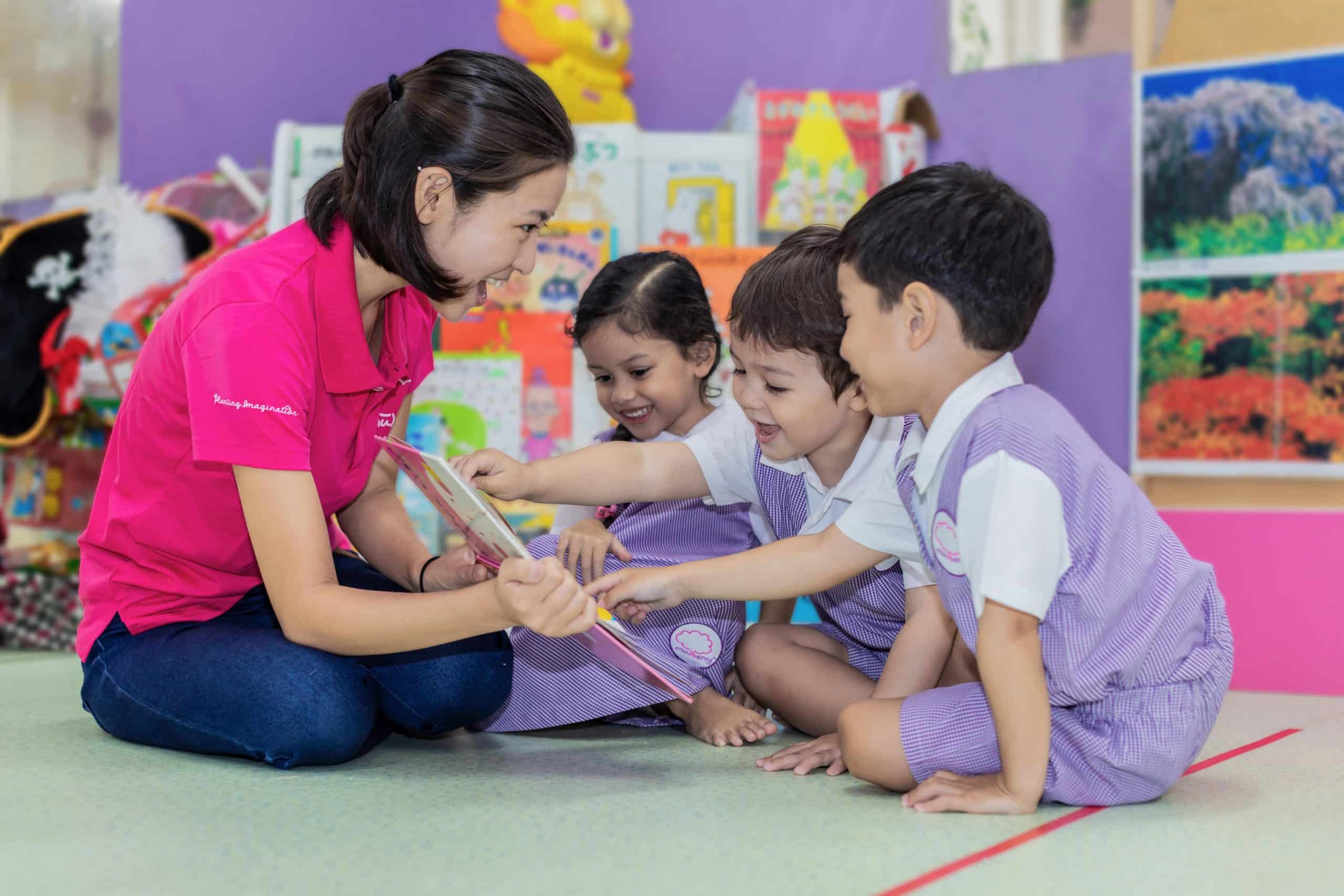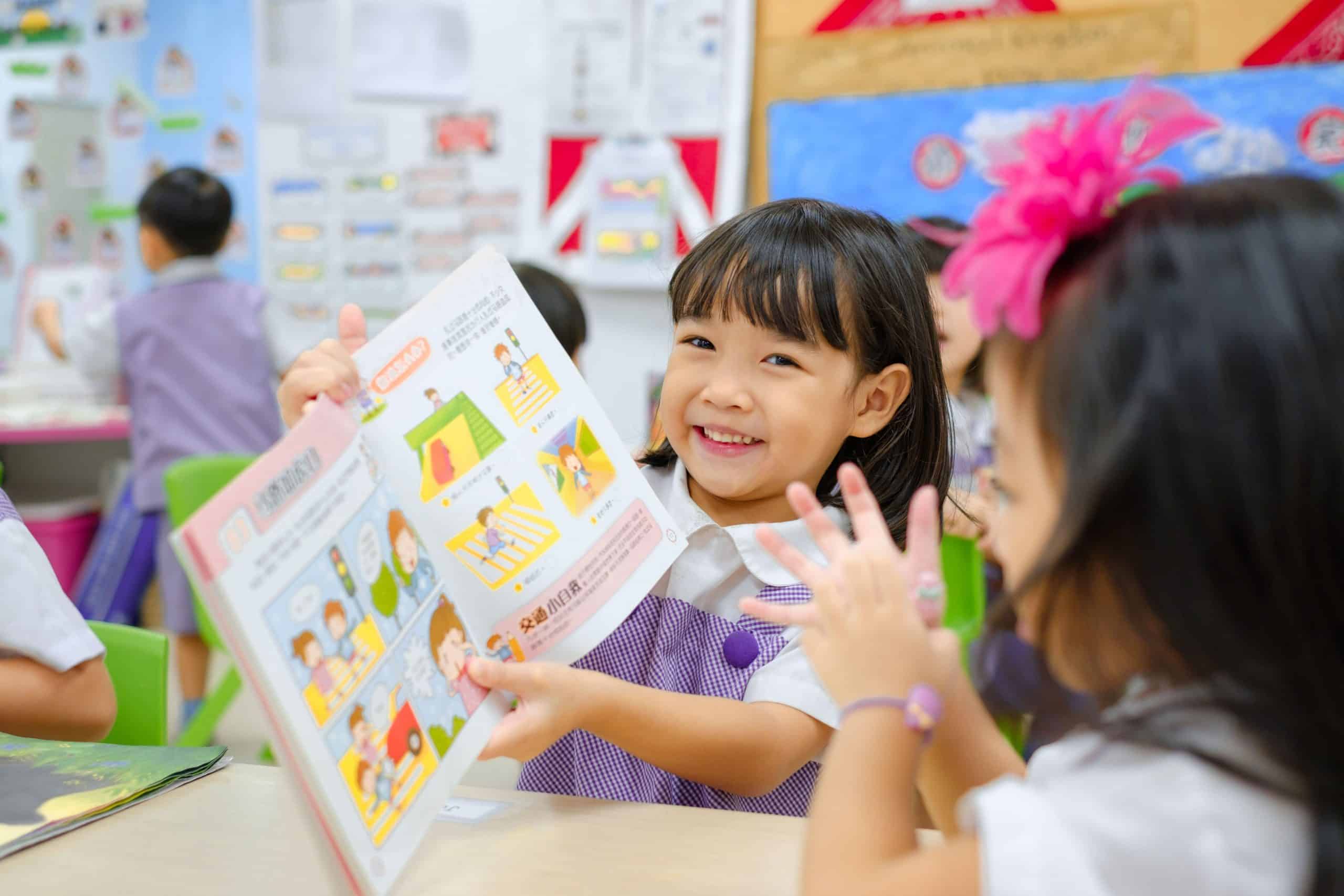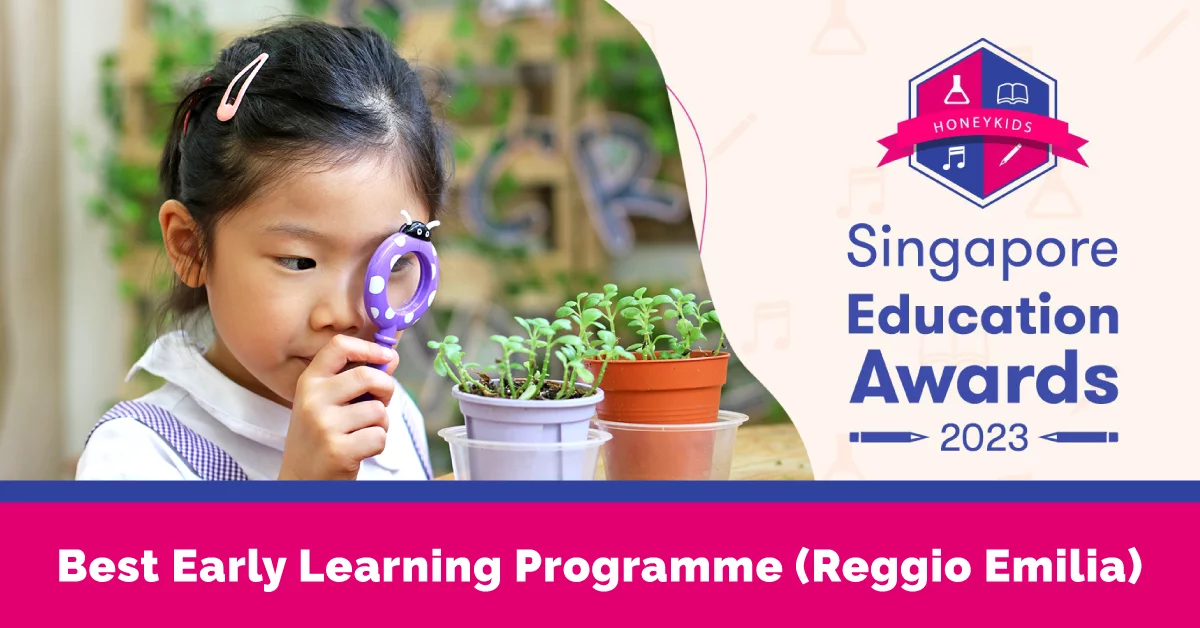
Top 5 Things to Know About Preschool Education in Singapore
Top 5 Things to Know About Preschool Education in Singapore

Students of Mulberry Learning during a class.
If you are racking your brains trying to decide on the best option for your child, fret not. Here are the top five things you absolutely need to know about preschool education in Singapore!
1. Preschool education is not compulsory in Singapore, but…
In fact, it is essential to ensure that preschoolers are exposed to quality preschool programmes. Research has shown that students who attend preschool programmes are more prepared for school and displayed clear positive effects on children’s early literacy and mathematics skills.
Quality and holistic preschool programmes are important due to the bevy of benefits children will gain. For instance, it will boost pre-literacy skills and develop foundational knowledge in mathematics. This is not limited to merely the teaching of knowledge. At Mulberry Learning, we pride ourselves on providing a holistic education that teaches knowledge and nurtures core skills and intelligent thinking habits and dispositions.
Given the fast-paced nature of Singapore’s education system, it is crucial to ensure children are well-prepared for primary school education and beyond; and quality preschool programmes such as those provided by Mulberry Learning are pivotal towards establishing the foundation for success.
2. You’ll be spoilt for choice
There are:
1. MOE Kindergartens
2. Anchor Operators and Partner Operators
3. Private Preschools

Students of MOE Kindergarten at North Vista. PHOTO: CHANNEL NEWS ASIA
As of 2022, there are five anchor operators. There are also 324 childcare centres under the new term of the POP scheme (2021-2025), run by 29 operators.
While the fees for private preschools are understandably pricier than government subsidised options, private preschools do offer a diversity of education approaches and employ unique teaching methods. Mulberry Learning for instance is an award-winning preschool and is the only school in Singapore to be certified by The Institute for Habits of Mind from the United States of America. It is a premium preschool brand that offers a unique educational approach that you will be hard-pressed to find elsewhere.
Furthermore, parents who prefer smaller class sizes might choose private preschools instead. The ECDA staff-child ratio is at 1:25 for K2 students but some private childcare centres offer a staff-child ratio of 1:15. In fact, at Mulberry Learning, we offer a teacher to child ratio of 1:12 in the first year of Kindergarten because we believe that young children require greater attention and care!
3. There are subsidies available
If your family’s household income is SGD$12,000 or lower, or works out to be SGD$3,000 or less per person in your household, and the mother is working, you are also eligible for an Additional Childcare Subsidy. You can then receive a maximum of SGD$467 for childcare.
Type of Subsidy
Requirements
Per household: $12,000 or
Per person: $3,000 (larger families)
Income ceiling
Mothers (or single fathers) who work at least 56 hours per month
Types of Benefits
Infant Care: $600 / month
Child Care: $300 / month
For non-working mothers
Infant Care: $150 / month
Child Care: $150 / month
Child Care: $467 / month
Type of Subsidy
Requirements
Types of Benefits
Basic Child Care Subsidy
Child must be enrolled in ECDA-licensed centre
Infant Care: $600 / month
Child Care: $300 / month
For non-working mothers
Infant Care: $150 / month
Child Care: $150 / month
Additional Child Care Subsidy
Per household: $12,000 or
Per person: $3,000 (larger families)
Income ceiling
Mothers (or single fathers) who work at least 56 hours per month
Child Care: $467 / month
Moreover, there is financial assistance granted under the Kindergarten Fee Assistance Scheme (KiFAS) and KiFAS Start Up Grant (SUG) for all children who are Singapore Citizens and who are enrolled in MOE or Anchor Operator kindergartens.
4. Various preschools offer different educational pedagogies

A student of Mulberry Learning during a Chinese immersion programme.
Ultimately, you know your child best. Do your research into the various educational pedagogies and decide which approach best fits your child’s personality and learning needs.
5. It’s also about equipping children with the right skills
Here at Mulberry Learning, we are extremely cognizant of our mission to equip our students with essential skills. This is why we offer S.T.E.A.M. based enrichment for our students, which is an educational discipline that engages children through Science, Technology, Engineering, the Arts and Mathematics. We offer various thrilling and fun enrichment activities, such as the Little Tinkerer programme that teaches children coding, and the Busy Baker programme that teaches children to appreciate and prepare food, whilst also exploring science and math concepts in cooking.
If you are looking for premium preschool education with an award-winning educational programme, contact Mulberry Learning today!
Mulberry School Tour
Our Locations
Click here to visit our Contact Us page and view the preschool/infant care centres conveniently located near you.
CONNECT WITH US
USEFUL LINKS
About Us
Mulberry Learning prides itself on making the preschool experience both memorable and enjoyable while transforming a child into a competent explorer, an imaginative thinker, and a creative problem solver. Through our proprietary award-winning curriculum, unique Habits of Mind programme and dedicated staff who are passionate about imparting positive attitudes, Mulberry Learning holds strong in its promise to deliver a holistic education that nurtures the Future Ready Child.
A PREMIUM PRESCHOOL BRAND UNDER GLOBAL EDUHUB





